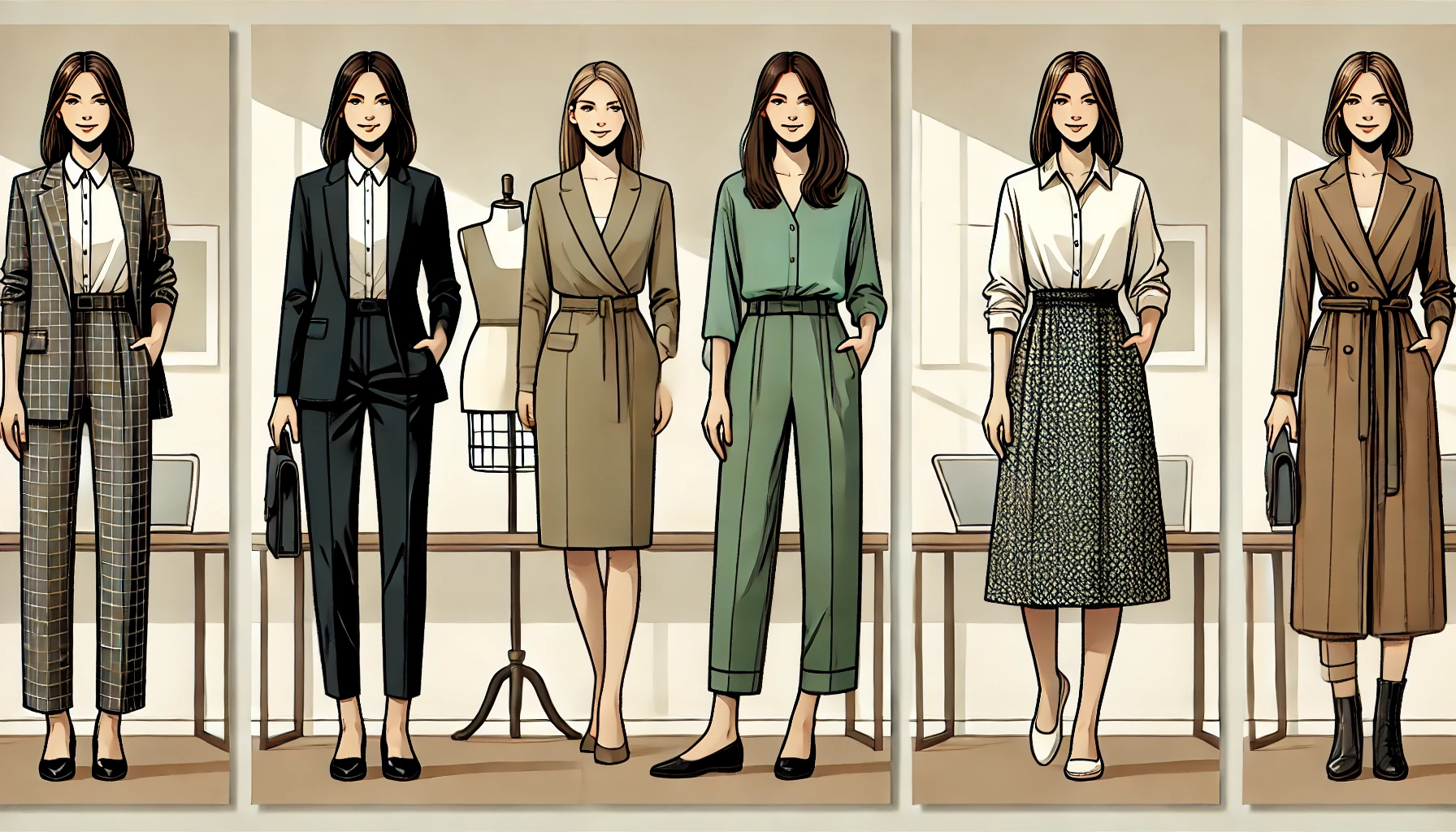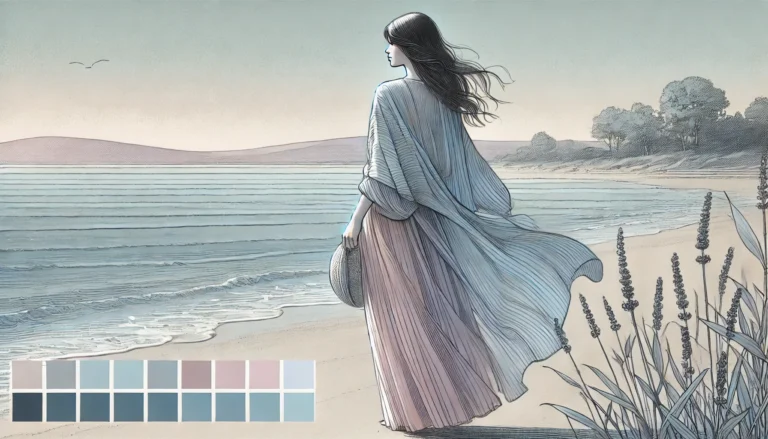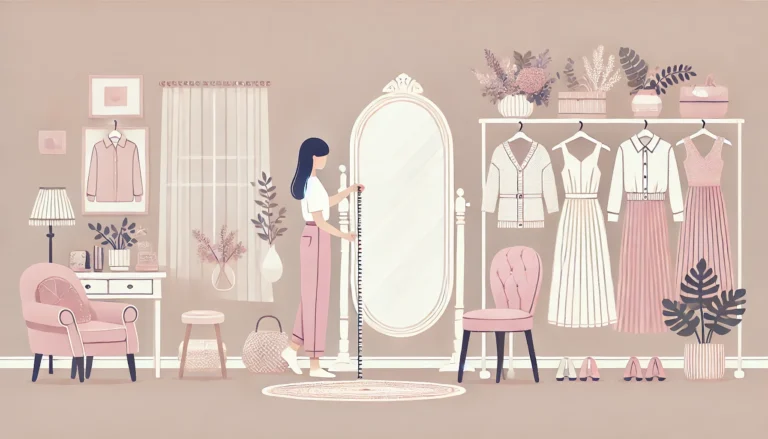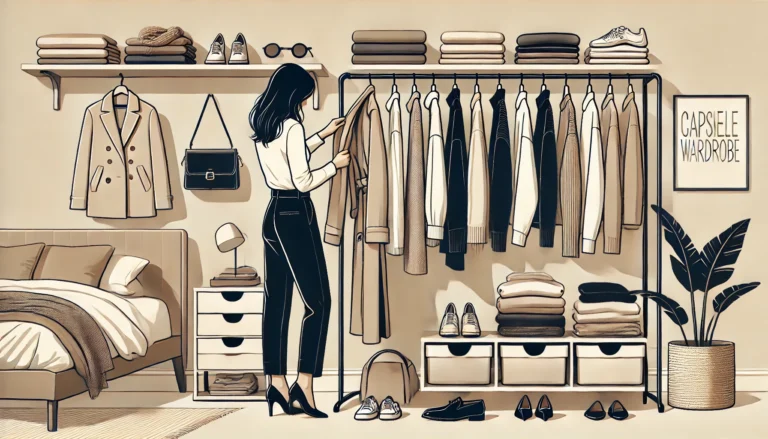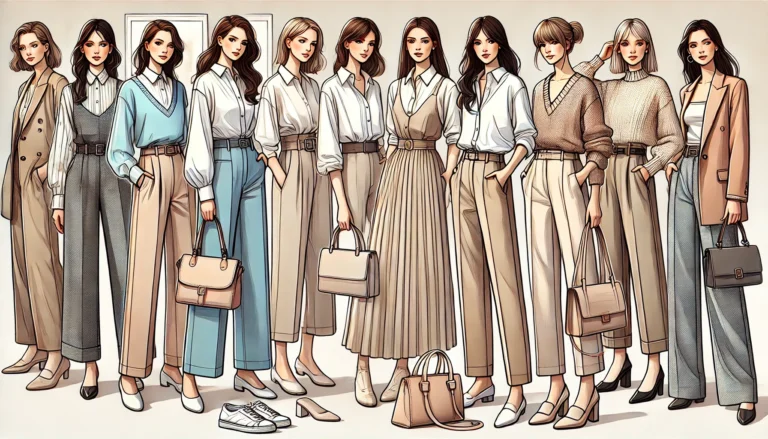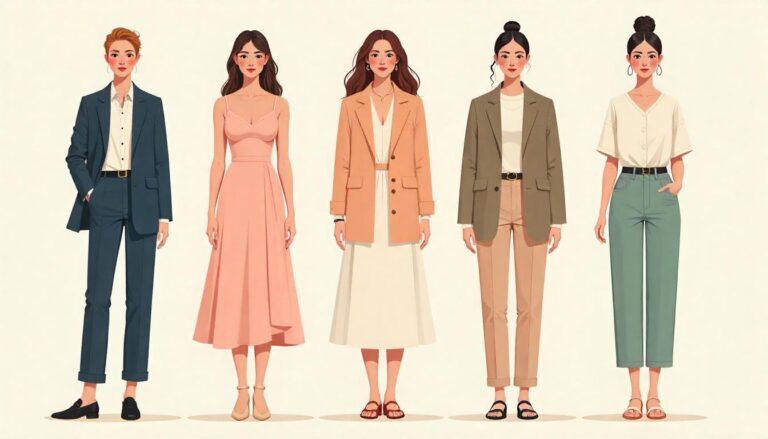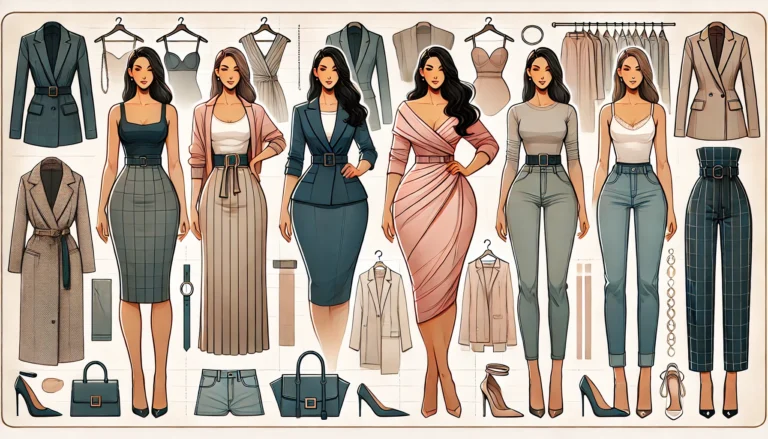Interview Attire for Women: Women’s Professional Style Guide
It’s natural to feel anxious about what to wear for an interview, especially with so many factors to consider, from the company’s dress code to making the right first impression. The goal here is to clarify how to navigate these concerns and help you select an outfit that reflects professionalism and personal style. This guide will equip you with practical insights on choosing the perfect interview attire for women, ensuring you feel confident, poised, and aligned with your prospective employer’s expectations.
Dress codes vary by company
Understanding the company’s culture is the first step in determining the most appropriate outfits for a job interview. Corporate environments, for instance, often require more formal attire, while startups or creative agencies may embrace a more casual approach. For women, this means that a tailored pantsuit in neutral tones like charcoal, navy, or black can be a safe choice for formal settings. Ensure that your jacket is well-fitted, as an ill-fitting blazer can give off an impression of untidiness, no matter how polished the rest of your interview attire for women may be.
Business casual attire is usually the way to go in more relaxed office environments, such as tech firms or advertising agencies. A smart blouse paired with tailored trousers or a pencil skirt offers a refined yet approachable look. Opt for pieces made of high-quality fabrics like silk, crepe, or cotton blends, as these materials tend to drape well and resist wrinkling throughout the day.
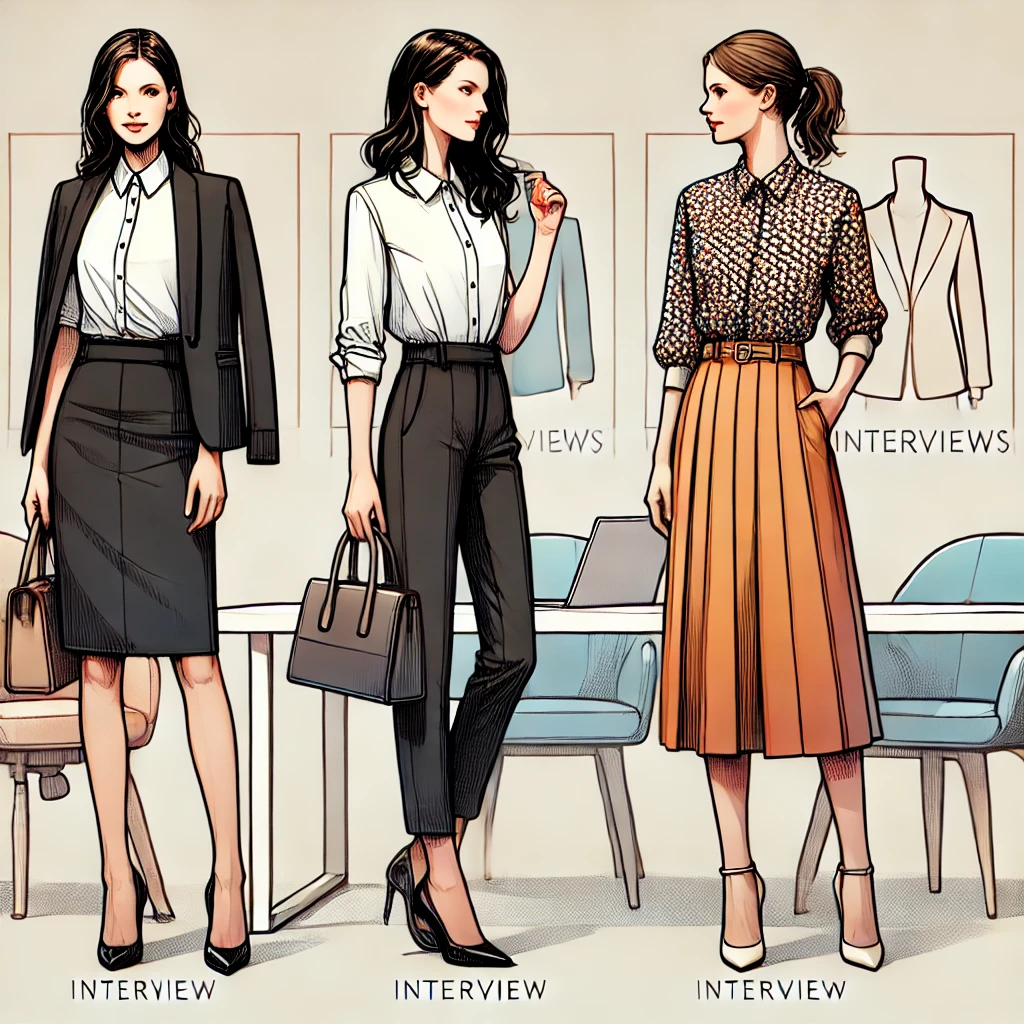
Invest in classic silhouettes
While trends can be tempting, it’s best to stick to timeless cuts and silhouettes for a job interview. These pieces not only look elegant but also ensure that your outfit won’t be perceived as outdated in a few months. For instance, a knee-length sheath dress in a solid color is a versatile option that exudes both professionalism and femininity. Pair it with a tailored blazer to create a cohesive, polished ensemble that can be your go-to dress for job interviews.
A-line skirts and straight-leg trousers are also staples of a professional wardrobe. When selecting trousers, ensure they are hemmed to the appropriate length — just skimming the tops of your shoes, without dragging on the floor. For skirts, aim for a length that hits just above or below the knee, avoiding extremes in either direction, as anything too short or too long may detract from the sophistication of your outfits for a job interview.
Footwear: comfort meets style
When it comes to shoes, aim for a balance between style and practicality. A pair of closed-toe pumps in a neutral shade like black, beige, or navy can complement most interview attire for women while maintaining comfort throughout a long day. Avoid heels that are too high; a 2-3 inch heel is ideal for offering both height and stability. If you’re not comfortable in heels, a pair of sleek ballet flats or loafers can be just as polished, provided they are in good condition and match the formality of the rest of your outfit for a job interview.
Leather shoes are typically a better option than synthetic materials, as they tend to be more durable and breathable. However, make sure your shoes are clean and polished, as scuffed or worn-out footwear can detract from an otherwise immaculate appearance.
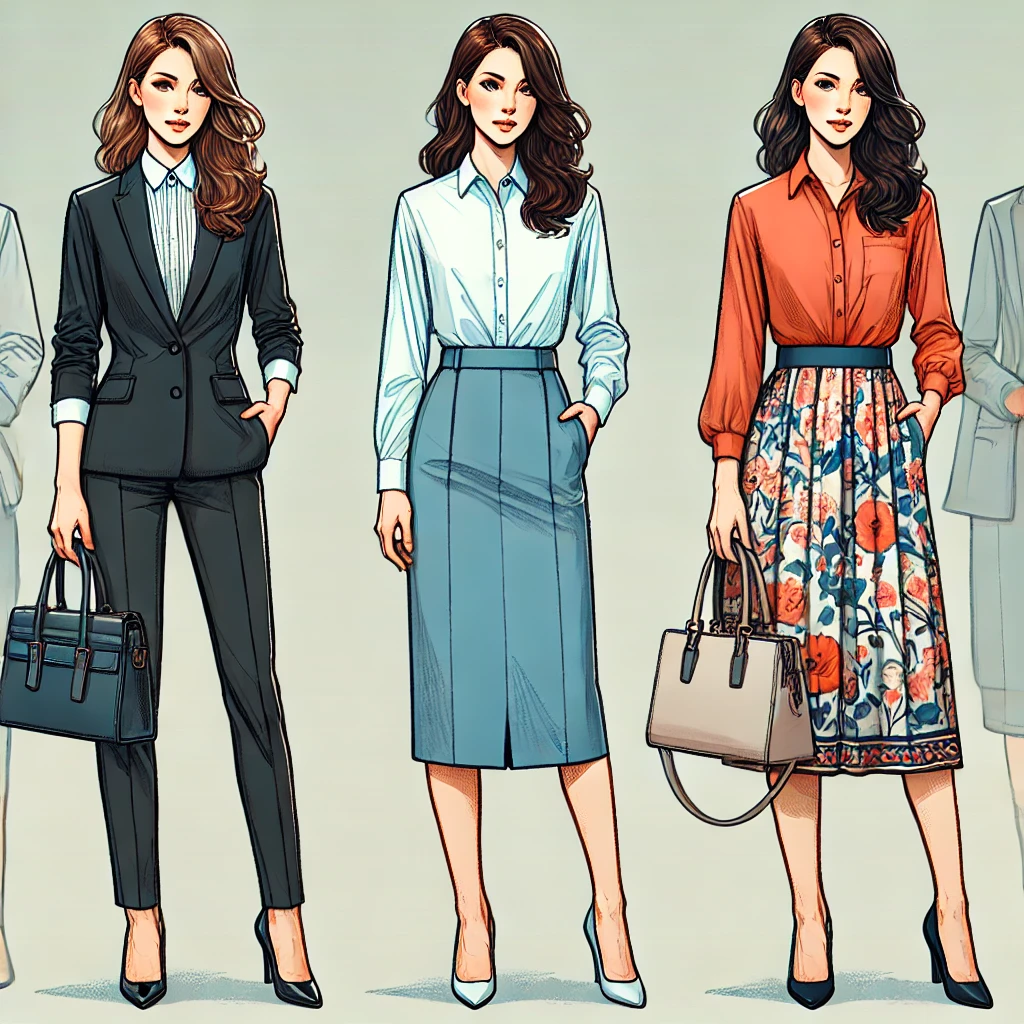
Attention to accessories
Accessories can elevate your outfit but should be chosen thoughtfully. A structured leather handbag in a classic color like black, taupe, or burgundy is both functional and stylish, ensuring that you have enough room to carry your essentials without compromising on formality. Avoid oversized bags that can look too casual for a professional setting, no matter how well-put-together your interview attire for women may be.
Jewelry should be minimal but refined. Opt for delicate pieces such as a small hoop or stud earrings, a simple pendant necklace, or a slim bracelet. Steer clear of anything too flashy or distracting, such as oversized statement necklaces or dangling earrings, as these can pull focus away from the conversation and onto your attire, which isn’t ideal when choosing what to wear for an interview.
Grooming: an essential part of your presentation
Your grooming is just as crucial as your attire. Hair should be neat and styled appropriately for the interview — whether it’s pulled back in a sleek ponytail, styled into soft waves, or worn in a clean bob. Avoid overly elaborate hairstyles that might distract from your professionalism, and make sure your hair is freshly washed and free of flyaways.
Makeup should be subtle and natural-looking. A foundation that matches your skin tone, a touch of blush, and neutral-toned eyeshadow can help enhance your features without overpowering them. Lipstick should be in a muted shade, avoiding overly bright or dark tones that might draw too much attention and distract from your overall outfit for a job interview.
Nails should also be well-maintained, with either a clear coat or a neutral polish. Bright colors or intricate nail art may not be appropriate for more formal settings, so err on the side of caution by keeping your nails clean and simple to match your interview attire for women.
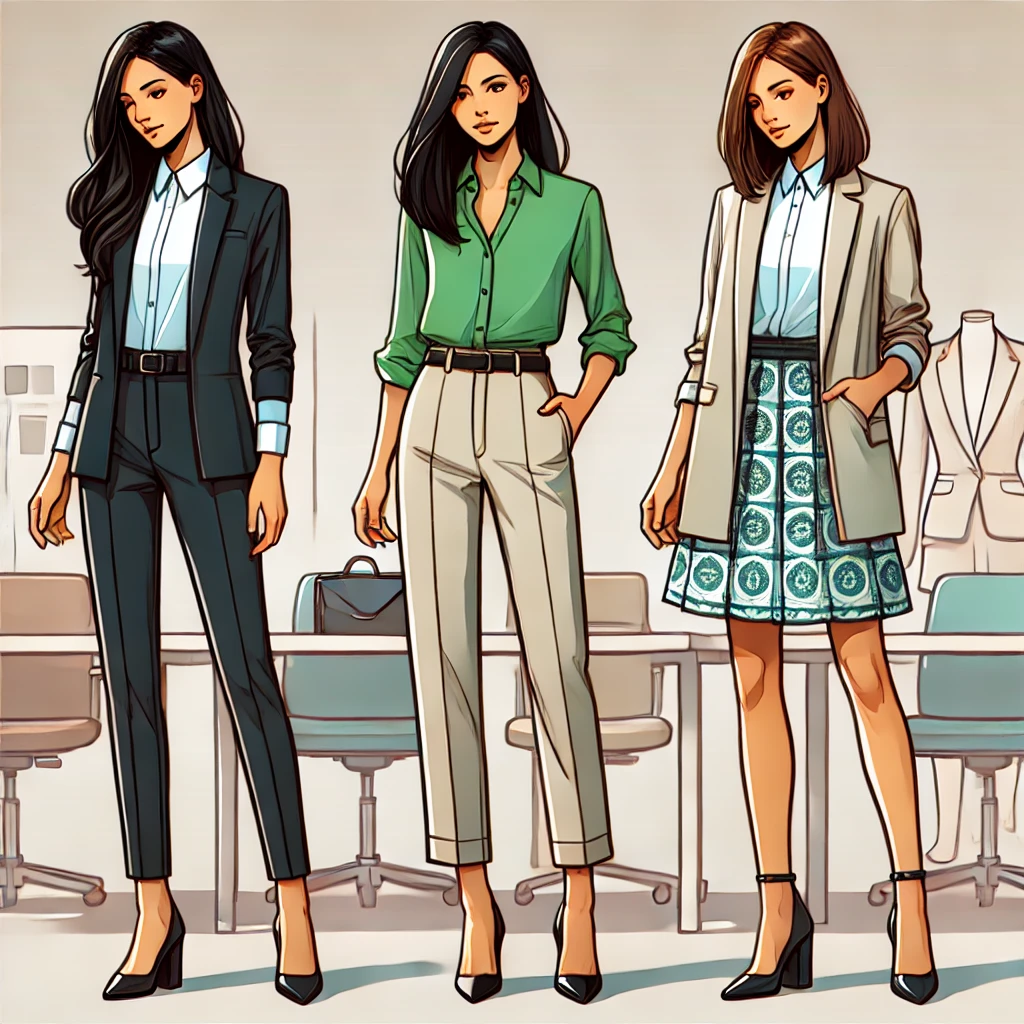
Fabrics matter
The fabric of your outfit is just as important as its style when deciding what to wear for an interview. Natural fabrics like wool, silk, and cotton tend to breathe better and look more polished than synthetic blends. A wool-blend blazer or skirt offers structure and durability, making it an excellent choice for colder months. In warmer climates, opt for breathable fabrics like linen or cotton, though these may require frequent ironing to maintain their crisp appearance.
For interviews held during the summer, lightweight materials such as chiffon or crepe can offer both comfort and sophistication. Be cautious with fabrics that wrinkle easily, as a creased outfit can leave a less-than-professional impression, no matter how well-chosen the rest of your interview attire for women is.
Tailoring and fit
Regardless of how stylish an outfit may be, an ill-fitting garment can undermine your entire look. Make sure all your clothes are tailored to fit your body properly, as off-the-rack items often require some adjustments. Blazers should fit snugly across the shoulders without pulling at the back, and trousers should fit comfortably around the waist and hips without being too tight or too loose.
If you’re wearing a dress for a job interview or a skirt, ensure it fits well at the waist and hips, providing enough room for comfortable movement without feeling restrictive. Clothes that are too tight can look unprofessional and may cause discomfort, while items that are too loose can appear sloppy or ill-fitting, impacting your outfits for job interviews.

Be mindful of color psychology
The colors you choose for your interview outfit can subtly influence how you are perceived. Neutral colors such as black, navy, and grey exude professionalism, authority, and reliability. These colors are ideal for more formal industries, such as finance, law, or consulting. However, if you’re interviewing for a more creative role, you can introduce soft pops of color to your outfits for job interviews. A blouse in a muted jewel tone, like emerald or sapphire, can convey creativity and confidence without being overly bold.
Bright colors or busy patterns, on the other hand, may not be suitable for more traditional settings. If you choose to incorporate color, make sure it complements your skin tone and doesn’t distract from the overall professionalism of your interview attire for women.
Weather considerations
When dressing for an interview, it’s important to consider the weather conditions. For rainy or colder months, layering is key. A tailored trench coat or wool overcoat in a neutral shade can protect your outfit for a job interview from the elements without compromising style. For footwear, avoid suede shoes on wet days as they may get damaged. Instead, opt for leather shoes that are weather-resistant and can be easily wiped clean.
In hot climates, choose breathable fabrics and lighter colors that reflect the sun, helping you stay cool and composed. Lightweight blouses paired with slim-cut trousers or skirts can keep you looking professional without overheating.
Final thoughts
Your interview attire is more than just clothes — it’s an extension of your brand. By carefully selecting your outfits for job interviews and ensuring they are tailored, appropriate for the company’s culture, and comfortable, you can walk into any interview feeling confident and prepared. Attention to detail, from the fit of your blazer to the shine of your shoes, can help you leave a lasting impression and demonstrate that you are serious about the opportunity in front of you.
